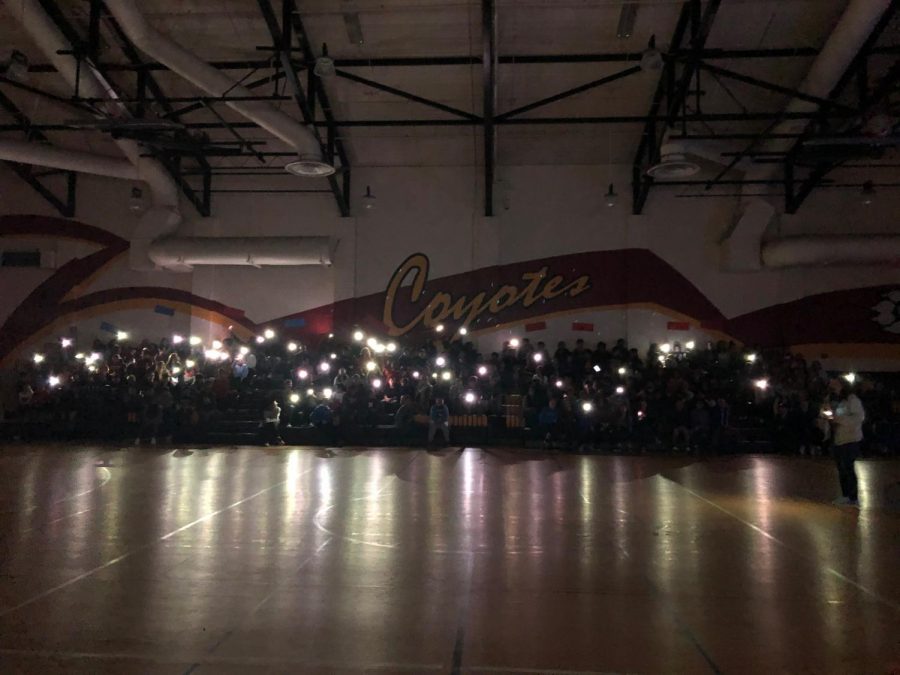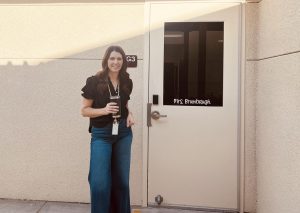#ICANHELP
The I Can Help assembly promoted helping others and calling out what is wrong in technology.
January 22, 2020
“I was a teacher, and someone created a fake FaceBook page of one of the teachers at the school. It was super mean, so I started to educate my own students,” said Kim Karr.
Karr is a representative for #ICANHELP who travels from school to school to teach students about digital wellness and social media.
#ICANHELP informs teachers, students, and parents about how social media may affect mental health.
“Everyone’s addicted to electronics. Anxiety has increased 38% since more devices came out.”
The #ICANHELP program is about staying safe and knowing what’s wrong and right to post on social media. Karr tells parents how people are sharing things they shouldn’t be sharing.
“We try to empower and educate students and adults on how to be positive online. Mental health is a real problem, so we’re calling it digital wellness,” Karr said.
#ICANHELP teams up with other companies in order to teach about digital wellness and mental health. Many things happen to students online, so they work to inform people about how to stay safe.
At the student assemblies, Karr made her presentation interactive by adding activities such as acting out improv scenarios and turning off the lights for cell phone response.
“This assembly may show a little impact because some kids may back off from being mean online,” said Emily P., a seventh-grader.
Karr gave more information to the parents about how to keep their child safe on social media at the parent night.
Along with traveling around the country, #ICANHELP helps with clubs and projects.
An example of a club they promote is The Blue Lollipop Project. This project allows kids with cancer to see the color of the lollipop since they cannot taste it.
“The Blue Lollipop Project, a child in a hospital receives a blue lollipop and all the money funds innovative research for child-specific cancers through The Ty Louis Campbell (TLC) Foundation,” said, Blue Lollipop.
#ICANHELP. #IWILLHELP. #IDIDHELP.






